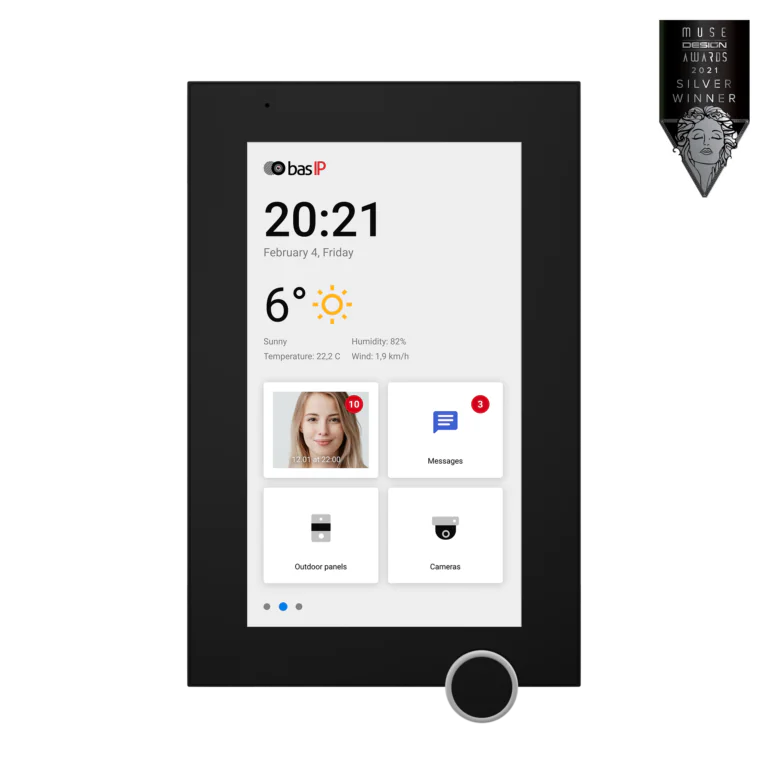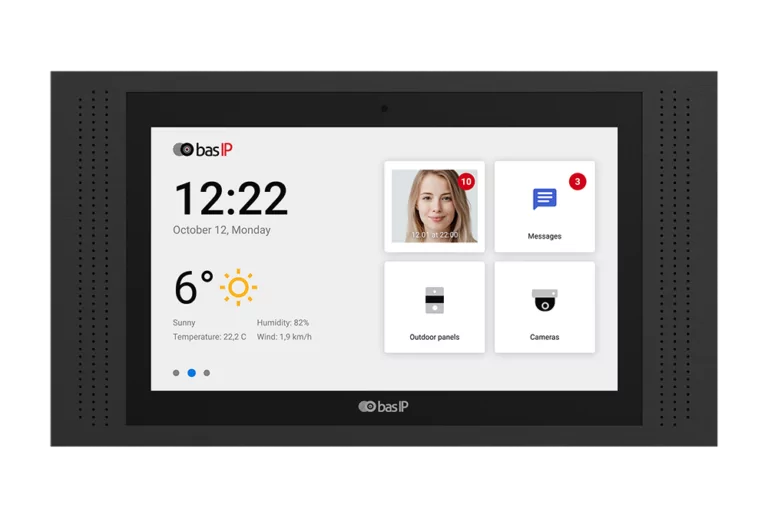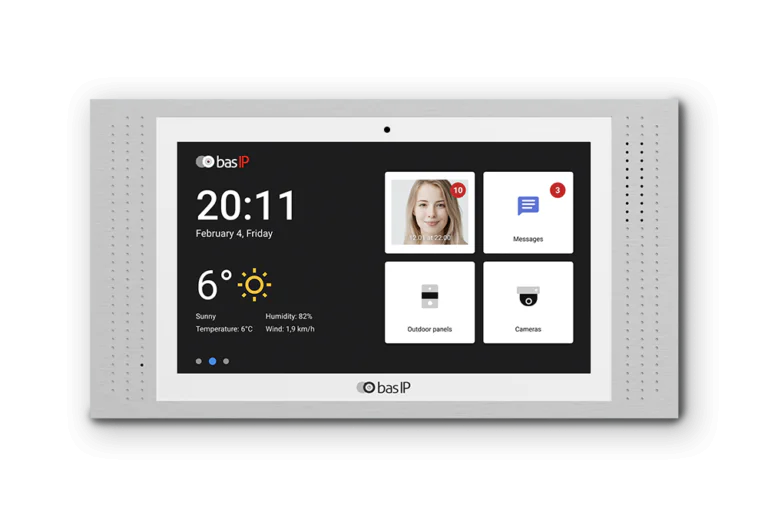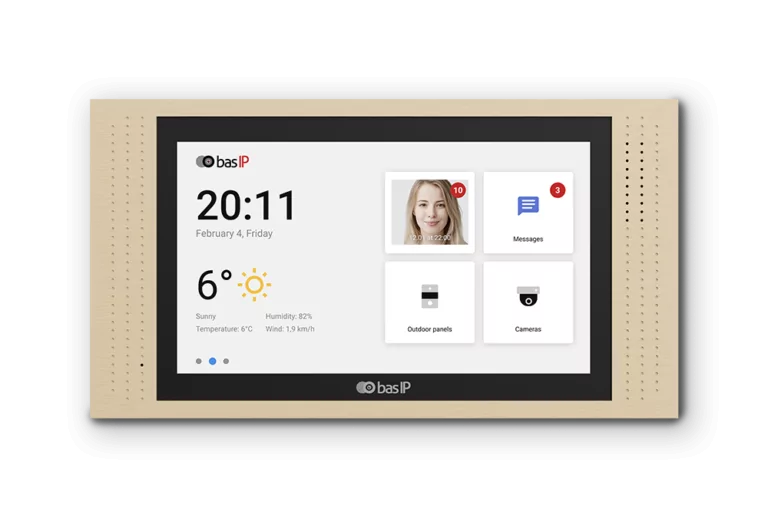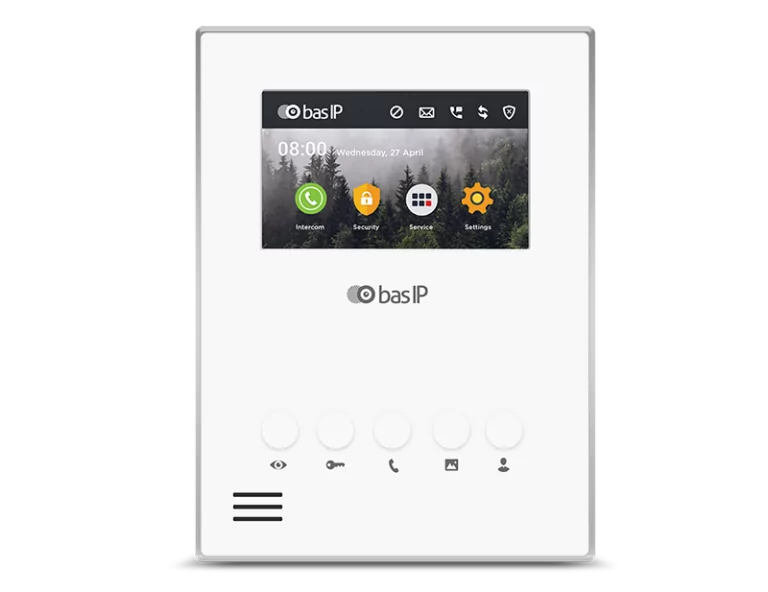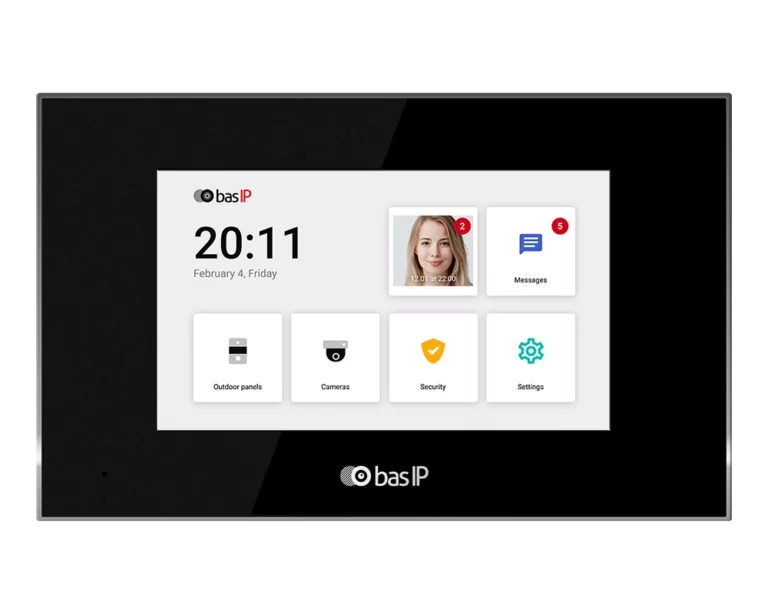VoIP Intercom Revolution: Enhancing Communication and Security

Efficient communication is crucial for businesses and residential buildings alike. VoIP intercom systems have emerged as a leading solution for addressing these needs, offering a range of benefits from enhanced security to cost savings. In this article, we’ll explore the various aspects of VoIP intercom technology, its applications, and the top solutions available on the market. Read on to learn how these systems can transform your communication and security experience.
What is a VoIP Intercom System?
A VoIP intercom system is a communication tool that leverages Voice over Internet Protocol (VoIP) technology to transmit audio and video signals over the internet. This advanced system allows users to communicate through intercom devices such as VoIP intercom phones, VoIP door intercoms, and industrial VoIP intercom systems. With features like remote access and integration with other security systems, VoIP intercoms are an ideal choice for both residential and commercial settings.
Benefits:
- Enhanced security: VoIP intercom systems enable real-time communication with visitors, allowing you to verify their identity before granting access.
- Cost savings: By utilizing the internet for communication, VoIP intercom systems eliminate the need for traditional phone lines, reducing long-term expenses.
- Scalability: VoIP intercoms can easily be expanded to accommodate additional devices or locations, making them a future-proof solution.
- Integration: VoIP intercom systems can seamlessly integrate with other security and communication tools, creating a comprehensive solution.
- Remote access: Access and control your VoIP intercom system from anywhere with an internet connection.
Types of VoIP Intercom Systems
VoIP Intercom System for Apartments

VoIP intercom systems are an excellent choice for apartment buildings, providing a secure and efficient way for residents to communicate with visitors. BAS-IP offers a robust VoIP intercom system for apartments, featuring the BAS-IP intercom phone (SP-03) and BAS-IP video door phones as master stations. These advanced devices ensure reliable communication and enhanced security for apartment complexes.
VoIP Intercom Master Stations
VoIP intercom master stations serve as the central hub for managing and controlling the entire intercom system. They allow users to communicate with multiple devices, manage access permissions, and monitor security. BAS-IP full duplex video door phones are a great example of a VoIP intercom master station, offering advanced features and seamless integration with other devices.
Industrial VoIP Intercom Systems
In industrial settings, a VoIP intercom system offers a reliable and durable solution for communication and security. Industrial VoIP intercoms are designed to withstand harsh conditions and integrate seamlessly with other security systems. They provide clear audio and video communication, enabling efficient collaboration and ensuring safety in the workplace.
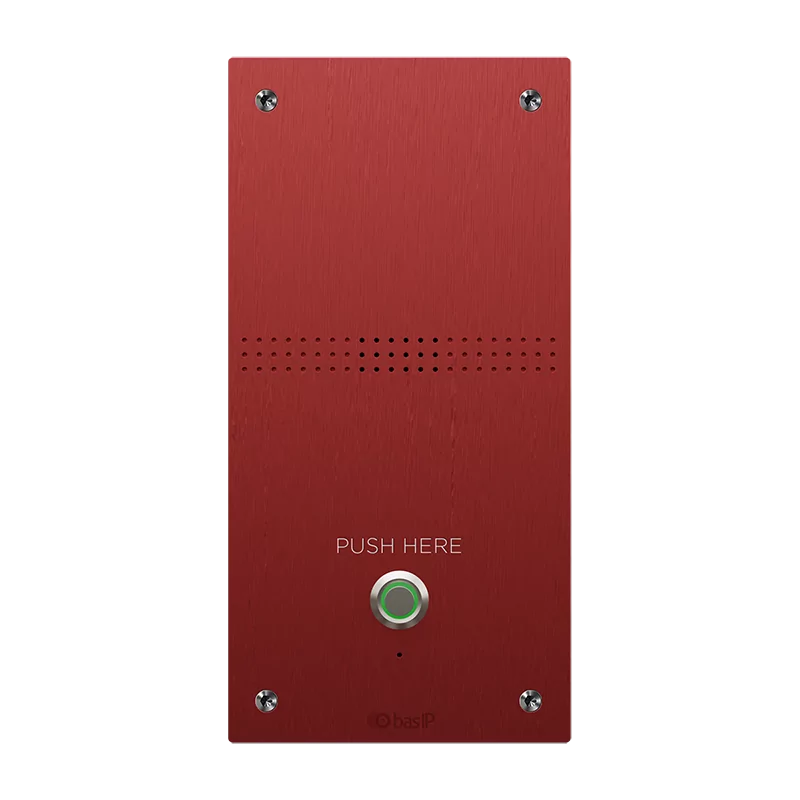
Integrating Third-Party VoIP Phones with BAS-IP VoIP Intercom System
The BAS-IP two way VoIP intercom system offers compatibility with various third-party VoIP phones, allowing users to benefit from a wide range of devices and features. In this section, we’ll discuss some popular third-party VoIP phone suppliers, that can be integrated with the BAS-IP VoIP intercom system.
Grandstream VoIP Phones
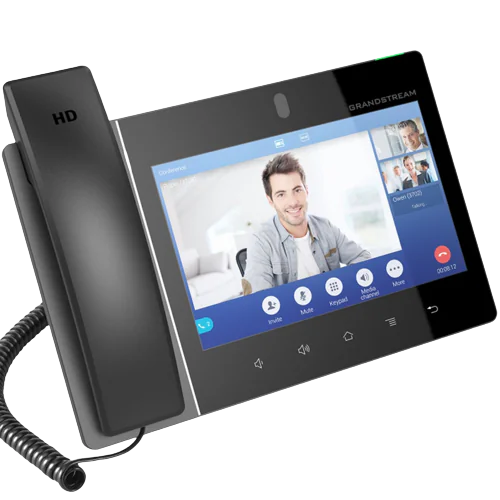
Grandstream is a well-known provider of VoIP communication solutions, offering a diverse selection of VoIP phones that can be integrated with the BAS-IP VoIP intercom system. Grandstream VoIP phones are known for their reliability, advanced features, and cost-effectiveness, making them an excellent choice for various applications.
Some popular Grandstream VoIP phone models that can be integrated with the BAS-IP VoIP intercom system include:
- Grandstream GXP Series: The GXP series comprises a range of high-quality VoIP phones with features such as HD audio, color displays, and support for multiple VoIP accounts. These phones are suitable for businesses of all sizes and can be easily integrated with the BAS-IP VoIP intercom system for seamless communication.
- Grandstream GXV Series: The GXV series offers video phones with advanced features such as touch-screen displays, HD video conferencing capabilities, and Android operating systems. These phones can be integrated with the BAS-IP VoIP intercom system to enable video communication with visitors and enhance security.
Other Third-Party VoIP Phone Suppliers
In addition to Grandstream, there are several other third-party VoIP phone suppliers that can be integrated with the BAS-IP VoIP intercom system. Some popular suppliers include:
- Yealink: Yealink offers a wide range of VoIP phones, from entry-level devices to advanced executive phones with features like touchscreen displays and video calling capabilities. Yealink phones can be easily integrated with the BAS-IP VoIP intercom system for a comprehensive communication solution.
- Cisco: Cisco is a global leader in networking and communication solutions, providing a variety of VoIP phones that can be integrated with the BAS-IP VoIP intercom system. Cisco’s VoIP phones offer advanced features, reliability, and security, making them suitable for businesses and organizations of all sizes.
- Polycom: Polycom is known for its high-quality VoIP phones, featuring exceptional audio quality, user-friendly interfaces, and a range of advanced features. Polycom phones can be integrated with the BAS-IP VoIP intercom system for a seamless communication experience.
Implementing a VoIP Intercom System: Tips and Best Practices

Assess Your Needs and Budget
Before implementing a VoIP intercom system, it’s essential to assess your needs and budget. Consider factors like the size of your property, the number of users, and the desired level of security. Determine your budget for both the initial installation and ongoing maintenance costs.
Work with a Professional Installer
A professional installer can help you navigate the process of implementing a VoIP intercom system. They can provide expert advice on selecting the right equipment, ensuring proper installation, and providing ongoing support.
Plan for Future Expansion
When planning your VoIP intercom system, consider the potential for future expansion. Choose a system that can easily accommodate additional devices or locations, ensuring a future-proof solution.
Integrate with Other Security Systems
Integrating your VoIP intercom system with other security systems can create a comprehensive security solution. Consider integrating with access control systems, CCTV cameras, and alarm systems for a seamless and effective security strategy.
SIP vs VoIP Intercoms: Understanding the Differences
When it comes to modern intercom systems, two popular technologies often come to the forefront: Session Initiation Protocol (SIP) and Voice over Internet Protocol (VoIP). While both technologies provide a foundation for internet-based communication, they have different features and applications. In this section, we will compare SIP and VoIP intercoms to help you understand the key differences and make an informed decision for your communication needs.
SIP Intercoms

SIP is a signaling protocol used for initiating, maintaining, modifying, and terminating real-time communication sessions over IP networks. SIP intercoms rely on this protocol to facilitate audio and video communication between devices. Key features of SIP intercoms include:
- Compatibility: SIP intercoms are compatible with a wide range of devices, such as IP phones, video door phones, and mobile devices, enabling seamless communication across platforms.
- Scalability: As a widely adopted standard, SIP allows for easy expansion and integration with other systems, making it a suitable choice for growing organizations.
- Advanced features: SIP intercoms can support advanced communication features, such as video calling, call forwarding, and call transfer.
- Security: SIP intercoms can use encryption protocols like TLS and SRTP to ensure secure communication.
VoIP Intercoms
VoIP intercoms, on the other hand, use VoIP technology to transmit audio and video signals over the internet. This technology converts analog voice signals into digital packets that can be transmitted over IP networks. Some key features of VoIP intercoms include:
- Cost savings: By using the internet for communication, VoIP intercoms can reduce long-term expenses associated with traditional phone lines.
- Flexibility: VoIP intercoms can be used with various devices and systems, providing flexibility for different applications and user preferences.
- Remote access: Users can access and control VoIP intercom systems from anywhere with an internet connection, offering enhanced convenience.
- Integration: VoIP intercoms can integrate with other security and communication systems, creating a comprehensive solution.
SIP vs VoIP Intercoms: Which One is Right for You?
While both SIP and VoIP intercoms provide internet-based communication, they cater to different needs and use cases. SIP intercoms are ideal for organizations looking for a standardized solution that can easily integrate with existing systems and support advanced communication features. VoIP intercoms, on the other hand, offer cost savings, flexibility, and remote access capabilities that make them suitable for a variety of settings, including residential and commercial applications.
To determine the best solution for your needs, consider factors such as compatibility, scalability, desired features, and budget. Consult with a professional to help you make an informed decision and implement the right intercom system for your specific requirements.
The Future of VoIP Intercom Systems
As technology continues to evolve, VoIP intercom systems are likely to become even more advanced and widespread. We can expect further improvements in audio and video quality, enhanced integration with other systems, and the development of more sophisticated security features. As a result, VoIP intercom systems will continue to play an essential role in enhancing communication and security in various settings.
Frequently Asked Questions (FAQs)
Conclusion
VoIP intercom systems have revolutionized the way we communicate and secure our properties. From apartment buildings to industrial complexes, these innovative solutions offer a host of benefits, including enhanced security, cost savings, and scalability. By understanding the different types of VoIP intercom systems and how they can be applied to various settings, you can make an informed decision about the best solution for your needs. Embrace the power of VoIP intercom technology and transform your communication and security experience today.
